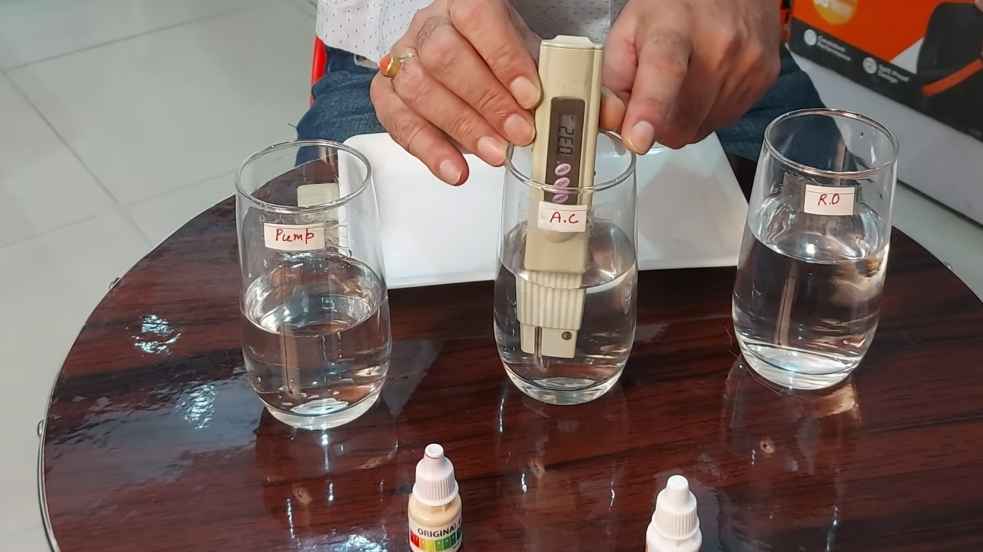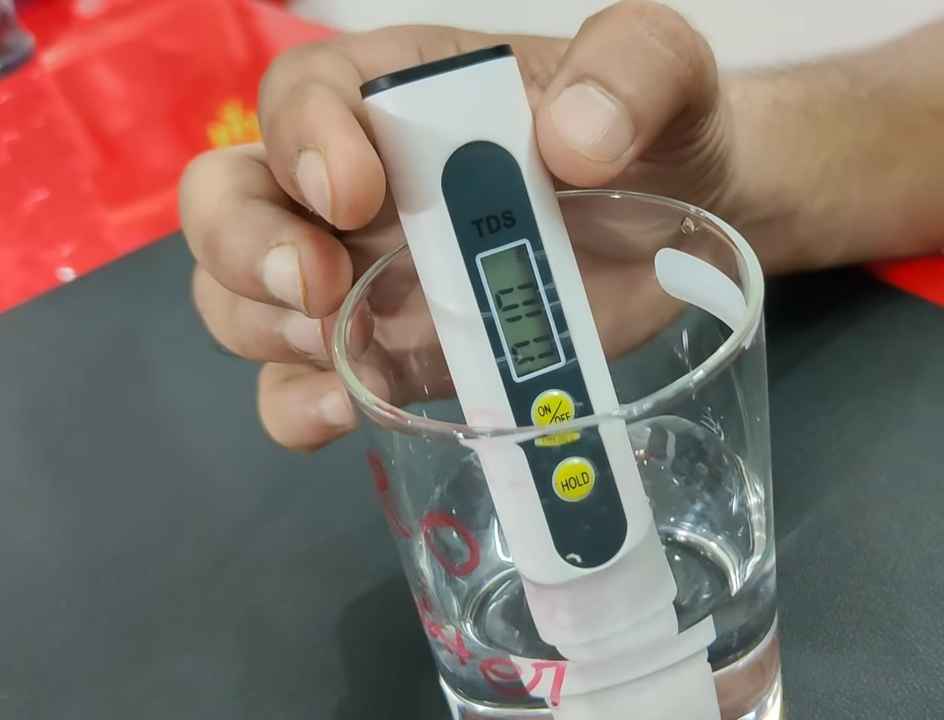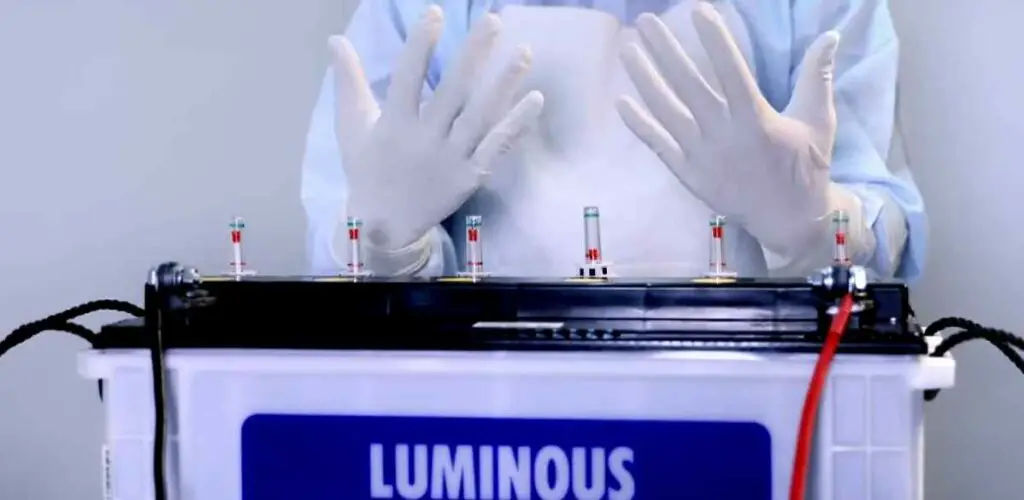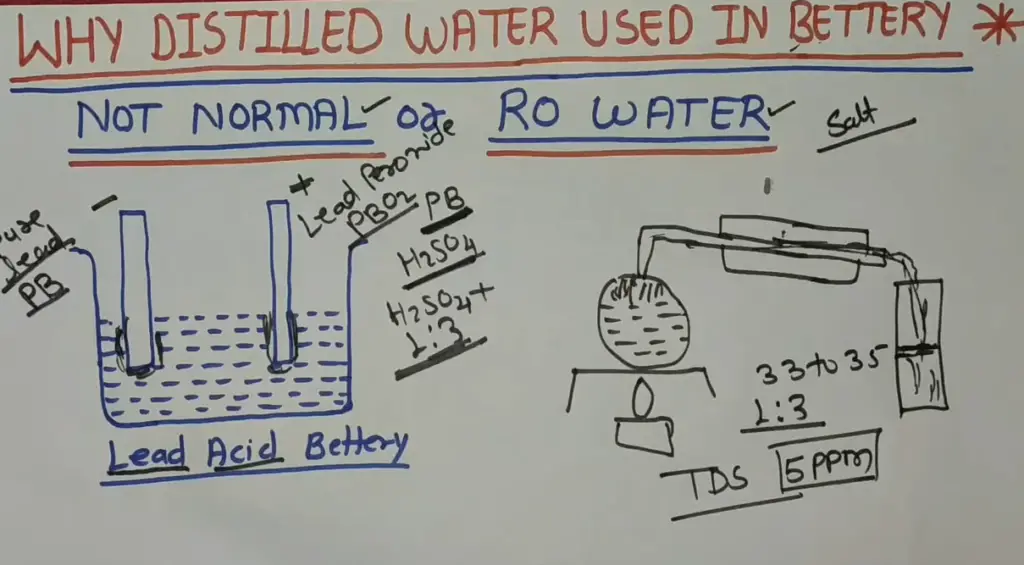No, we cannot use AC water in inverter batteries. Inverter batteries are a type of Lead-Acid battery and need to be filled with distilled or deionized water for proper functioning.
Using tap or AC (air conditioned) water can lead to mineral deposits on the plates of the battery and thus decrease its performance.
Tap/AC water also contains chlorine which is corrosive and can damage the cells of the battery reducing their capacity as well as life expectancy.
It is therefore important to fill your inverter battery with clean, filtered, pure, distilled/deionized water only for it to work properly without any risk of damaging it early on.

Which Water Can Be Used in Inverter Battery?
When it comes to choosing the right water for your inverter battery, it is important to make sure that you are using safe and clean water.
The best type of water to use in an inverter battery is distilled or deionized water.

Distilled or de-ionized water has been purified of all minerals and other common contaminants found in tap water, making it free from any impurities that could potentially damage the internal components of your inverter battery over time.
This type of pure, natural H2O also helps keep the electrolyte level balanced which allows for more efficient performance as well as a longer lifespan for your inverter battery.
Additionally, using distilled or de-ionized water reduces the amount of sediment buildup on the bottom plate which can lead to premature corrosion and failure if left unchecked over time.
When adding new water to your inverter batteries always be sure to fill them up completely with this type of pure H2O.
So you can rest assured knowing that they will perform at their peak efficiency levels each and every time!
Can We Use Rain Water in Inverter Battery?
Yes, you can use rainwater in an inverter battery.
Rainwater is not only free but also contains fewer minerals and chemicals than tap water.
Additionally, it has a low pH level which helps to reduce corrosion of the battery plates which can lead to decreased performance and shorter lifespan for the battery.
It is important to ensure that all debris has been removed from the rainwater before using it as this could damage or contaminate your battery’s cells.

Can We Use Ro Water in Inverter Battery?
Yes, you can use RO water in your inverter battery. It is important to ensure that the water has been adequately purified before using it to fill up the battery.
RO (Reverse Osmosis) technology uses a semi-permeable membrane and pressure to remove impurities from water, making it ideal for filling up batteries.
Make sure that you regularly check the level of dissolved solids in the water as this will affect how long your inverter battery lasts.
Additionally, always keep an eye out for any changes in color or odor as this could indicate contamination of the water.
Distilled Water for Battery

Using distilled water to top off the battery cells in a car or other vehicle is one of the best ways to ensure that it operates optimally and lasts as long as possible.
This type of water has had all impurities removed, which means there are less contaminants present that can cause corrosion on your battery’s terminals.
Additionally, distilled water also helps maintain an ideal level of electrolytes, which are necessary for proper electrical conductivity and efficient chemical reactions within the battery itself.